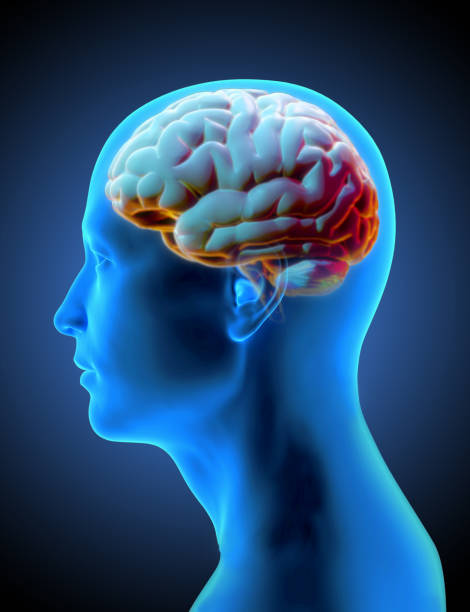In a quiet corner of a hospital in China, a young woman sits across from her doctor, trying to explain something that doesn’t quite fit into checkboxes. “I feel… foggy,” she says. “I forget things. I can’t think straight. It’s like my brain isn’t mine anymore.”
For decades, doctors have known that depression affects the heart, the body, and especially the mind. But now, a new study offers powerful evidence that what patients feel about their own thinking—their subjective cognitive experience—may hold the key to how deeply they suffer and how fully they recover.
A landmark longitudinal study published in Psychological Medicine has uncovered a striking connection: in individuals with major depressive disorder (MDD), the sense that their thinking is impaired—the “felt” cognitive dysfunction—is more tightly linked to the severity of depression and to recovery in daily life than previously realized. In fact, this inner fog may predict how people fare even more than their mood itself.
The findings come from the Prospective Cohort Study of Depression in China (PROUD), a sweeping multicenter project that followed 1,376 people diagnosed with major depressive disorder over a full year. With rigorous psychological assessments, the researchers explored how emotional symptoms and cognitive function—both as measured in tests and as reported by patients—interact over time.
Their conclusion is both sobering and hopeful: while antidepressants may ease sadness and anxiety, the hidden world of cognitive dysfunction—how patients perceive their memory, focus, and decision-making—plays a surprisingly large role in whether they regain a sense of social and functional normalcy.
Depression’s Invisible Weight
Major depressive disorder is often portrayed as a storm of sadness, a withdrawal from life colored by hopelessness and fatigue. But behind the tears and silence lies a subtler, often more persistent force: cognitive dysfunction. For many patients, this doesn’t feel like “thinking less clearly”—it feels like being trapped behind glass. Words blur. Memories evaporate. Tasks once effortless become monumental.
Dr. Jingjing Zhou, the lead author of the study, wanted to understand how these subjective experiences—not just clinical test scores—shape the course of depression. “We often overlook how patients experience their thinking,” she explained. “This study shows that their personal sense of cognitive impairment is not just a symptom—it’s a driver.”
Unlike objective cognitive tests, which might ask someone to memorize numbers or solve puzzles, subjective cognitive assessments focus on how patients describe their day-to-day thinking. Are they easily distracted? Do they forget appointments? Can they finish what they start?
These experiences, the study finds, are far from superficial. They are deeply woven into the fabric of depressive illness and recovery.
A National Window into the Depressed Mind
The PROUD study spanned 18 hospitals across China and followed patients from June 2022 to June 2024. The participants, most of whom were in their twenties and early thirties, represented a rich cross-section of people living with depression. Nearly 60% were experiencing their first depressive episode, and 900 of the 1,376 participants were women.
All participants began antidepressant monotherapy and were assessed over an eight-week treatment period, with additional follow-ups after 52 weeks. Researchers evaluated depression and anxiety using gold-standard scales such as the Hamilton Depression Rating Scale and the Generalized Anxiety Disorder-7 (GAD-7). Objective cognitive functioning was assessed with the Chinese Brief Cognitive Test, while subjective experiences were measured with the Perceived Deficits Questionnaire – Depression-5.
What made the study stand out was its layered approach. It didn’t just ask how depressed a patient was, but also how foggy they felt, how they scored on memory tests, and how well they were functioning in daily life—relationships, work, social roles—using the Sheehan Disability Scale.
The Surprising Power of Subjective Experience
The results were striking. Over the first eight weeks, both mood symptoms and cognitive performance improved for most patients. But those who felt their thinking was impaired at the beginning were more likely to still struggle with depression weeks later—even if their formal test scores improved.
In short, the subjective sense of cognitive fog was a stronger predictor of future depression severity than the depression itself. It was a loop: people who believed they couldn’t think clearly tended to remain more depressed, which in turn reinforced their sense of mental dullness.
The relationship went both ways, but the researchers found that cognitive self-assessments had a slightly greater predictive power than mood symptoms alone. The brain, it seems, doesn’t just feel pain—it remembers how it feels to think.
This effect was echoed in anxiety scores, suggesting that the cognitive fog wasn’t just a reflection of mood—it was its own burden, its own beast.
Recovery in Real Life: More Than Just Feeling Better
Even more important than mood, though, was the question of functioning. Were patients able to return to work? Reconnect with friends? Take care of themselves?
Here, the study delivered one of its most compelling findings: while both depression relief and cognitive clarity helped people regain daily functioning, subjective cognitive improvements were the strongest driver of social recovery.
Patients who felt their minds were clearing up were more likely to resume their lives. Those whose thoughts still felt muddled—regardless of test scores—struggled to re-engage, even if their sadness had lifted.
“Subjective cognitive dysfunction is more strongly associated with depressive symptoms and plays a significant role in social functioning recovery,” the authors wrote, adding that new interventions should specifically target this dimension.
Implications: Rethinking How We Treat Depression
This study has far-reaching implications, not just for China, but for the global understanding of depression. It adds to a growing body of evidence that depression isn’t just emotional—it’s cognitive. And while medications may lift mood, they often leave behind the silent residue of slowed thinking, poor memory, and mental exhaustion.
Historically, psychiatry has relied on mood-based scales to measure improvement. But this research calls for a broader view—one that listens more closely to how patients describe their own minds.
For clinicians, it suggests a need to routinely assess subjective cognition and incorporate cognitive rehabilitation into treatment plans. For researchers, it highlights the urgency of developing new therapies—both pharmacological and psychological—that directly address mental fog.
And for patients, it offers something deeply validating: your experience matters. If you feel like your thinking isn’t right—even if your depression is “better”—that experience is real. And it deserves care.
A Word of Caution and a Call for Action
While this study is robust in scope and insight, the authors note that its observational design limits definitive causal claims. In other words, while subjective cognitive fog predicts worse outcomes, it’s not yet clear whether treating it directly will cause improvement. Still, the link is too strong to ignore.
What’s next? More targeted studies are needed to untangle the complex relationship between mood, cognition, and function—and to test whether interventions like cognitive training, psychotherapy, or even new medications can directly clear the fog.
Until then, the message is clear: cognitive symptoms are not an afterthought. They are central to how depression is lived and how it is overcome.
The Future of Healing Minds
In the quiet moments between doctor visits, when the world is going on and a patient is still struggling to think clearly, these findings offer something rare: understanding.
To be told, “You’re not imagining this. Your mind feels different, and that matters,” can be a turning point.
Depression is not just about sadness—it’s about the loss of the self that once thought clearly, felt energized, and made decisions without fear or hesitation. This study brings that truth into sharper focus and opens the door to new possibilities for healing.
Because sometimes, healing doesn’t begin with a smile. It begins when the fog lifts.






